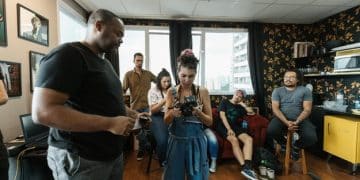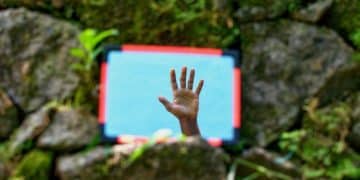Brazilian Film Schools: Preparing Filmmakers for Future Challenges?
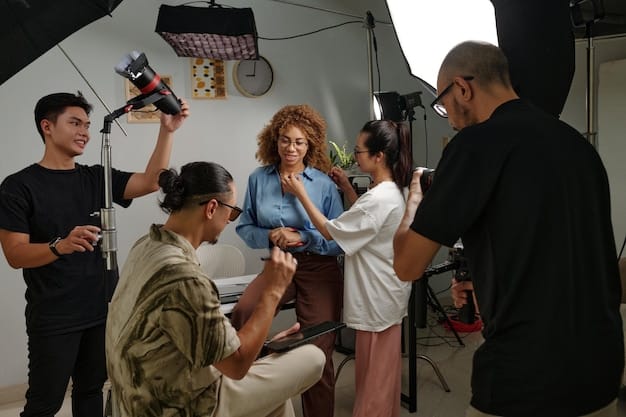
Brazilian film schools play a crucial role in shaping the nation’s cinematic future, yet their preparedness for the evolving industry challenges lies in their ability to adapt curricula, foster innovation, and connect graduates with global opportunities.
In a rapidly evolving global entertainment landscape, the role of educational institutions in nurturing future talent becomes paramount. This is particularly true for a vibrant and culturally rich nation like Brazil, where cinema has a strong historical and social significance. We delve into The Role of Film Schools in Brazil: Are They Preparing the Next Generation of Filmmakers for the Challenges Ahead? by examining their current methodologies, adaptations to technological shifts, and their ability to equip students with the necessary skills and resilience to thrive in an increasingly competitive and digital industry.
The Evolving Landscape of Global Cinema and Brazil’s Place
The global film industry is in constant flux, shaped by technological advancements, shifting consumption habits, and diverse narrative demands. From the rise of streaming platforms to the increasing prevalence of virtual production, filmmakers today face a complex array of tools and opportunities unheard of even a decade ago. Brazil, with its rich cinematic heritage and a new wave of critically acclaimed productions, occupies a unique position within this global narrative. Historically, Brazilian cinema has often reflected social realities and cultural nuances, gaining international recognition at festivals like Cannes and Berlin.
However, merely having a strong artistic voice is no longer enough. The industry requires professionals who are not only creative and culturally aware but also technologically adept, business-savvy, and adaptable. This puts immense pressure on film schools to ensure their curricula remain relevant and forward-thinking. The challenge is multi-faceted: balancing classical filmmaking principles with contemporary digital demands, fostering innovation while respecting tradition, and preparing students for a highly interconnected yet often unstable global market.
Global Trends and Local Realities
The move towards decentralized content creation, driven by affordable technology, has democratized filmmaking to some extent. However, it has also intensified competition, requiring graduates to possess a diverse skill set to stand out. Brazil’s unique challenges include navigating complex funding landscapes, fostering international co-productions, and ensuring cultural preservation alongside commercial viability.
- Increased demand for diverse voices and stories.
- Rise of digital distribution challenging traditional models.
- Growing importance of multidisciplinary skills beyond a single craft.
- Need for robust business acumen in creative professionals.
These trends dictate that film education in Brazil cannot remain static. It must evolve quickly, anticipating future needs rather than merely reacting to present ones. The ability of film schools to integrate these global trends with Brazil’s local realities will be a significant determinant of their success in producing the next generation of filmmakers.
Curriculum Design: Traditional Foundations vs. Modern Necessities
A cornerstone of any film education is its curriculum. Traditionally, film schools have focused on fundamental aspects such as directing, screenwriting, cinematography, editing, and sound design. These core competencies remain vital, providing students with a solid understanding of cinematic language and production workflows. However, the modern industry demands more. The explosion of digital platforms, virtual reality, augmented reality, and interactive storytelling necessitates a broader, more flexible educational approach.
Many Brazilian film schools are grappling with the delicate balance between preserving foundational knowledge and integrating cutting-edge technologies and evolving industry practices. This often involves significant investment in new equipment, training for faculty, and revising pedagogical methodologies.
Integrating New Technologies and Methodologies
The traditional classroom setting may no longer be sufficient. Modern film education increasingly benefits from hands-on experience with industry-standard equipment, collaborative projects, and direct interaction with established professionals.
- Virtual Production (VP) and Extended Reality (XR) integration.
- Data analytics for audience engagement and content optimization.
- Cross-platform storytelling, including web series and podcasts.
- Emphasis on agile production methodologies.
A critical aspect is not just teaching how to use new tools, but how to think creatively with them. It also involves fostering entrepreneurial skills. Filmmakers today are often expected to be their own producers, marketers, and distributors, especially at the independent level. Therefore, business modules, intellectual property rights, and pitching techniques are becoming indispensable components of a comprehensive film education.
Bridging the Gap: Academic Theory and Industry Practice
One of the most persistent criticisms leveled against academic institutions, not just in film, is a perceived disconnect between theoretical learning and practical industry demands. For film schools in Brazil, this challenge is particularly acute. The industry moves fast, often outpacing the slower pace of academic curriculum updates. Graduates stepping out of film school need to be job-ready, equipped with not just knowledge but also practical experience and a robust professional network.
To address this, many film programs are emphasizing internships, collaborative projects with production companies, and direct mentoring from industry professionals. Partnerships with film festivals, broadcasters, and streaming platforms also provide invaluable real-world exposure.
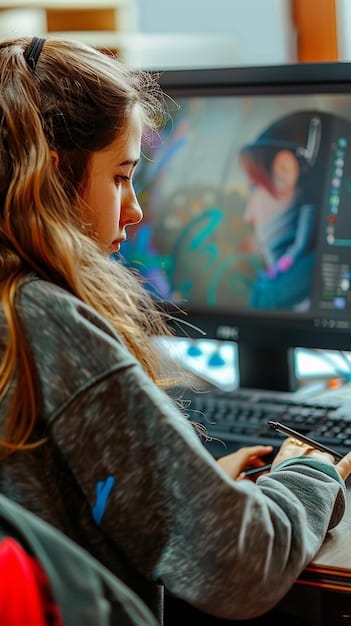
Real-World Projects and Mentorship Programs
Structured internships are crucial. They allow students to apply classroom knowledge in a professional environment, understand industry workflows, and build essential contacts. Mentorship programs, where seasoned professionals guide aspiring filmmakers, offer personalized advice and insights into navigating career paths. These initiatives provide practical skills, such as how to manage budgets, negotiate contracts, and troubleshoot on set.
Additionally, film schools are increasingly building “incubators” or “labs” where students can develop and produce their own short films, web series, or even feature film concepts with institutional support. This empowers students to take initiative, learn by doing, and create a portfolio that demonstrates their capabilities to potential employers. However, ensuring equitable access to these opportunities for all students, regardless of their socioeconomic background, remains an important consideration for Brazilian institutions.
The Role of Faculty and Resources in Shaping Future Filmmakers
The quality of a film school is intrinsically linked to its faculty and the resources it can offer. Experienced educators, who are themselves active practitioners in the film industry, can provide invaluable insights and connections. Their ability to impart not just theoretical knowledge but also practical wisdom, based on their real-world experience, is a huge asset. This often means attracting and retaining top-tier professionals willing to dedicate their time to teaching.
Investment in state-of-the-art equipment, cutting-edge software, and well-equipped studios is equally critical. Filmmaking is a highly technical art form, and access to industry-standard tools ensures that graduates are proficient and current with the technologies they will encounter in professional settings. This often presents a significant financial challenge for institutions, especially in developing countries.
Investment in Technology and Instructor Expertise
Beyond equipment, a dynamic learning environment fosters creativity and critical thinking. This includes access to extensive film archives, research materials, and opportunities for interdisciplinary collaboration. The ability to bring in guest lecturers, organize masterclasses, and facilitate workshops with international experts further enriches the learning experience and expands students’ global perspectives.
A key challenge for Brazilian film schools can be securing consistent funding to maintain and upgrade these resources. Public institutions often rely on government budgets, which can fluctuate, while private schools depend on tuition fees or private donors. Sustainable funding models are crucial for ensuring that these schools can continue to provide high-quality education and remain competitive on a global scale.
Fostering Creativity, Cultural Identity, and Social Responsibility
Beyond technical proficiency and industry savvy, film schools in Brazil bear a unique responsibility: to nurture creativity rooted in Brazilian cultural identity and to instill a sense of social responsibility. Brazilian cinema has historically been a powerful medium for reflecting and critiquing society, for exploring diverse narratives, and for giving voice to underrepresented communities. Maintaining this legacy while pushing artistic boundaries is a delicate balance.
This involves encouraging experimental approaches, supporting projects that explore unconventional themes, and fostering a deep understanding of Brazil’s complex social, historical, and cultural landscape. Film students should not only learn how to tell stories but also understand why certain stories need to be told and the impact they can have on society.
Shaping Artistic Voice and Ethical Practices
Developing a unique artistic voice is paramount for any filmmaker. Film schools should provide a nurturing environment where students feel empowered to experiment, take risks, and find their own storytelling style. This extends to promoting ethical practices in filmmaking, particularly concerning representation, consent, and the responsible use of powerful imagery.
- Encouraging original storytelling that reflects Brazil’s diversity.
- Promoting engagement with social issues and human rights.
- Developing critical thinking for media consumption and creation.
- Emphasizing sustainable production practices.
By blending technical skill with a strong ethical compass and a profound appreciation for their cultural heritage, Brazilian film schools can produce filmmakers who are not only successful in their careers but also contribute meaningfully to the country’s cultural discourse and global cinematic landscape. This holistic approach ensures that graduates are not just technicians, but artists and thoughtful cultural contributors.
Assessing Success: Graduates’ Pathways and Industry Impact
The ultimate measure of a film school’s success lies in the careers of its graduates and their impact on the industry. Are Brazilian film school graduates finding meaningful employment? Are they contributing to innovative projects? Are they reshaping the narrative of Brazilian cinema or building bridges with international markets? Tracking graduate success involves more than just job placement rates. It includes understanding the quality of roles, entrepreneurial ventures, and critical recognition.
This assessment requires robust alumni networks, feedback mechanisms from industry partners, and a clear understanding of the career paths available to filmmakers today – which are far more diverse than ever before. Graduates might pursue careers in traditional film and television, but also in advertising, game development, virtual reality, or even digital content creation for social media.
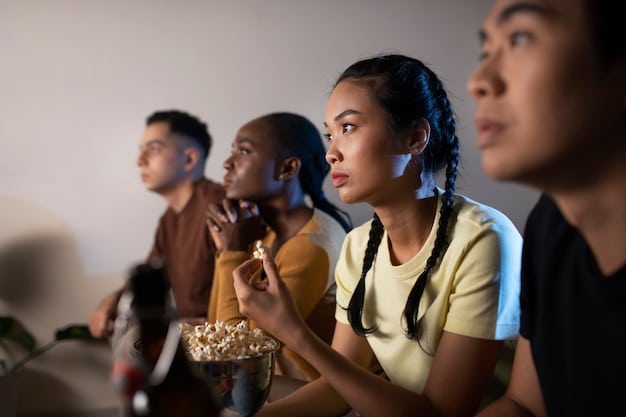
Career Diversity and Global Reach
Many successful Brazilian filmmakers are indeed products of the country’s film schools, having gone on to direct acclaimed features, work in major studios, or establish their own independent production houses. However, the path is rarely linear. Film schools must prepare students for a highly competitive environment where resilience, adaptability, and continuous learning are key.
Success also means fostering an international outlook. Encouraging students to participate in international festivals, workshops, and co-production markets expands their horizons and potential opportunities. Collaborations between Brazilian film schools and international institutions can further facilitate this global exchange of talent and ideas. Ultimately, the impact of these schools will be seen in the lasting contributions their alumni make to Brazilian culture and to the broader world of cinema, proving their capacity to prepare filmmakers for all challenges.
| Key Point | Brief Description |
|---|---|
| 🎬 Evolving Curriculum | Balancing traditional filmmaking with new digital tools and industry demands is crucial for relevance. |
| 🤝 Industry Integration | Internships, real-world projects, and mentorship bridge theory and practical application. |
| 🇧🇷 Cultural & Social Impact | Beyond technical skills, fostering Brazilian cultural identity and social responsibility is vital. |
| 📈 Graduate Success Pathways | Assessing career diversity and global reach demonstrates a school’s effectiveness in preparing future talent. |
Frequently Asked Questions
▼
Many Brazilian film schools are actively modernizing their equipment and curricula to incorporate new technologies like virtual production and advanced editing software. However, consistent funding often poses a challenge for all institutions to keep pace with rapid technological advancements globally.
▼
Brazilian graduates often navigate a complex local funding landscape, requiring strong entrepreneurial skills. They also face intense global competition and the need to tell stories that resonate internationally while maintaining cultural authenticity. Networking within diverse industries is also crucial.
▼
While local focus is strong, many schools recognize the value of international exposure. Some actively promote student participation in global festivals, workshops, and co-production forums, and a few have established partnerships with international film institutions to enhance global learning and networking opportunities.
▼
Cultural identity is deeply embedded in Brazilian film education. Schools emphasize storytelling that reflects Brazil’s diverse social, historical, and cultural nuances. This ensures graduates produce authentic narratives that contribute to both national discourse and global cinema’s rich tapestry, distinguishing them on the world stage.
▼
Absolutely. Most reputable Brazilian film schools prioritize hands-on experience through practical projects, short film productions, and mandatory internships with production companies. Many also offer mentorship programs and industry partnerships to facilitate real-world learning and professional networking before graduation.
Conclusion
The landscape facing Brazilian film schools is complex and dynamic, reflecting the global shifts in the entertainment industry. While significant strides are being made to integrate technological advancements and nurture entrepreneurial spirit, the continuous challenge lies in maintaining curriculum relevance, securing sustainable resources, and fostering a deep connection between academic training and the realities of industry practice. Ultimately, the effectiveness of these institutions in preparing the next generation of filmmakers will dictate not only their individual success but also the future vibrancy and global footprint of Brazilian cinema itself. Their ongoing evolution and adaptation are essential for ensuring Brazil’s cinematic voice continues to resonate powerfully on the world stage.


